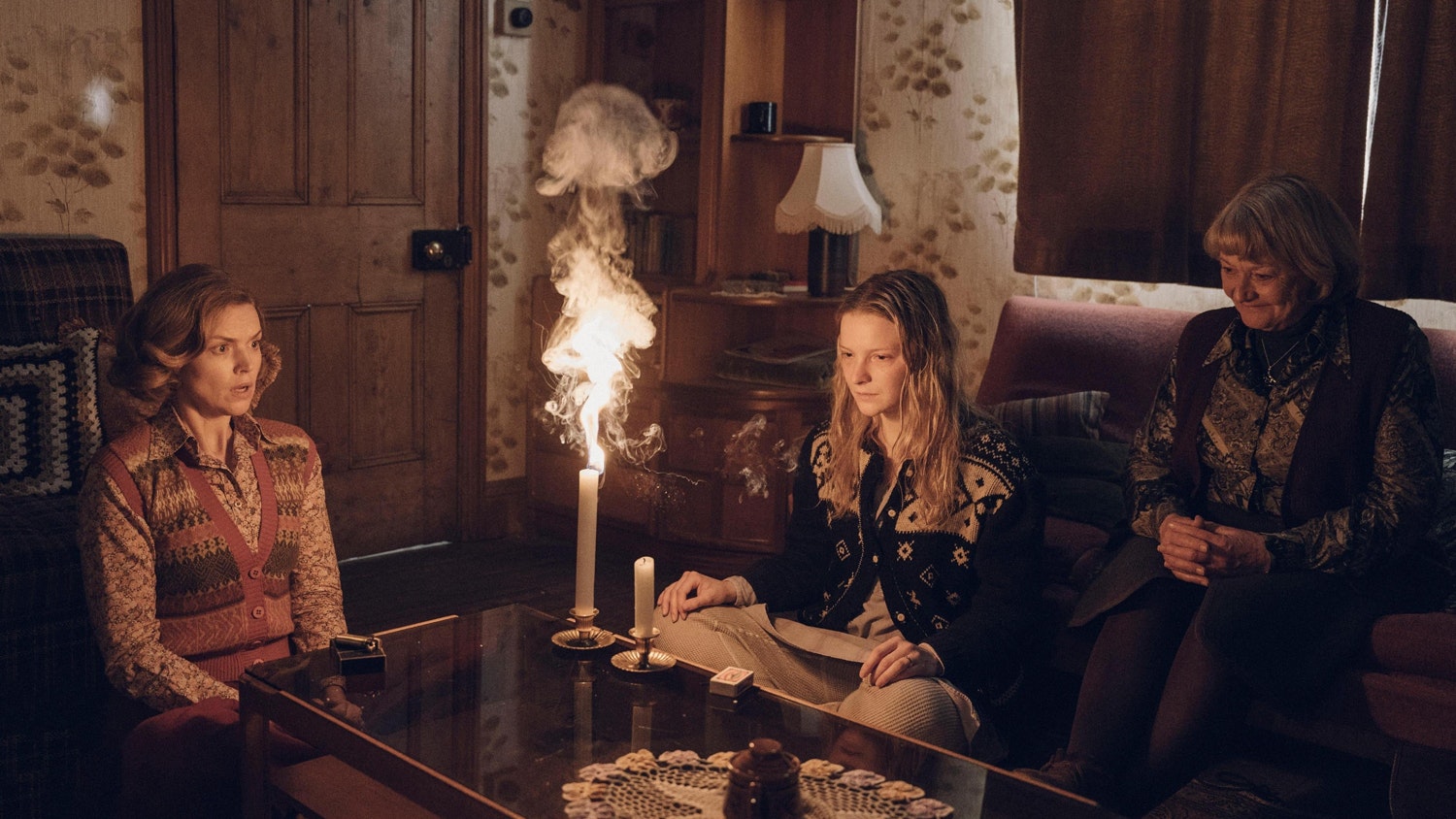Starve Acre
Director Daniel Kokotajlo follows up his 2017 debut Apostasy with a radical...

Director Daniel Kokotajlo follows up his 2017 debut Apostasy with a radical shift that no-one could have predicted. Adapted from the Andrew Michael Hurley titular novel, Starve Acre trades the religious fervour of Apostasy for the folkloric kind, though the stark intimacy of Kokotajlo’s restrained filmmaking remains, with mostly solid results.

The film is disorienting from the outset, rupturing an idyllic day out for archeologist Richard (Matt Smith) and his wife Juliette (Morfydd Clark). The couple are picture perfect: lounging against a tree, his head on her lap, until their son Owen (Arthur Shaw) is caught red-handed (or rather, his stick is) after gouging the eye from a pony. The family’s move to Richard’s family home in rural Yorkshire proves not to be the salve for Owen’s ailing health that they hoped it to be — in fact, Owen claims to hear the voice of the same spirit that has been haunting Richard since childhood.
Morfydd Clark’s most haunting performance since Saint Maud.
Kokotajlo is an adept world-builder, using slow zooms and long takes of the misty moors to allude to demonic forces that lurk beneath the earth. Matthew Herbert’s score, incorporating breathy woodwind and atmospheric ambient noise, further adds to that constant sense of unease. Much of Starve Acre is indebted to the likes of The Wicker Man and Don’t Look Now — with a seeming nod to the latter when Juliette watches another Donald Sutherland vehicle on TV — and folk horror is having a moment now, even if this film does struggle to make its distinctive genre mark.
Taking a more muted approach, Starve Acre eschews loud, overt scares in favour of something more chilling, the kind that buries itself and takes root in your skin. It’s there in the preserved, skeletal remains of a hare that Richard discovers, which inexplicably ages in reverse back to life. Detailed close-ups focus on the stunning, monstrous special effects: brittle bones calcifying, crimson blood erupting, a beating, living heart.
When the family is struck by tragedy, Richard and Juliette develop their respective obsessions to heal their wounds. Adopting horror as a lens to examine death and grief is nothing new, but the ways in which the pair find life in death lead to some suitably spooky images. Juliette turns to the supernatural in Clark’s most haunting performance since Saint Maud, taking that stone-faced walk into darkness to gloomier depths. Meanwhile, Richard unearths his childhood home’s secrets quite literally, digging underground to uproot an ancient tree. Archeology is a glacial process, and the film is a similarly slow burn in excavating familial trauma. The pacing is patchy, but what is uncovered is — on the whole — gripping, disturbing horror.
What's Your Reaction?























